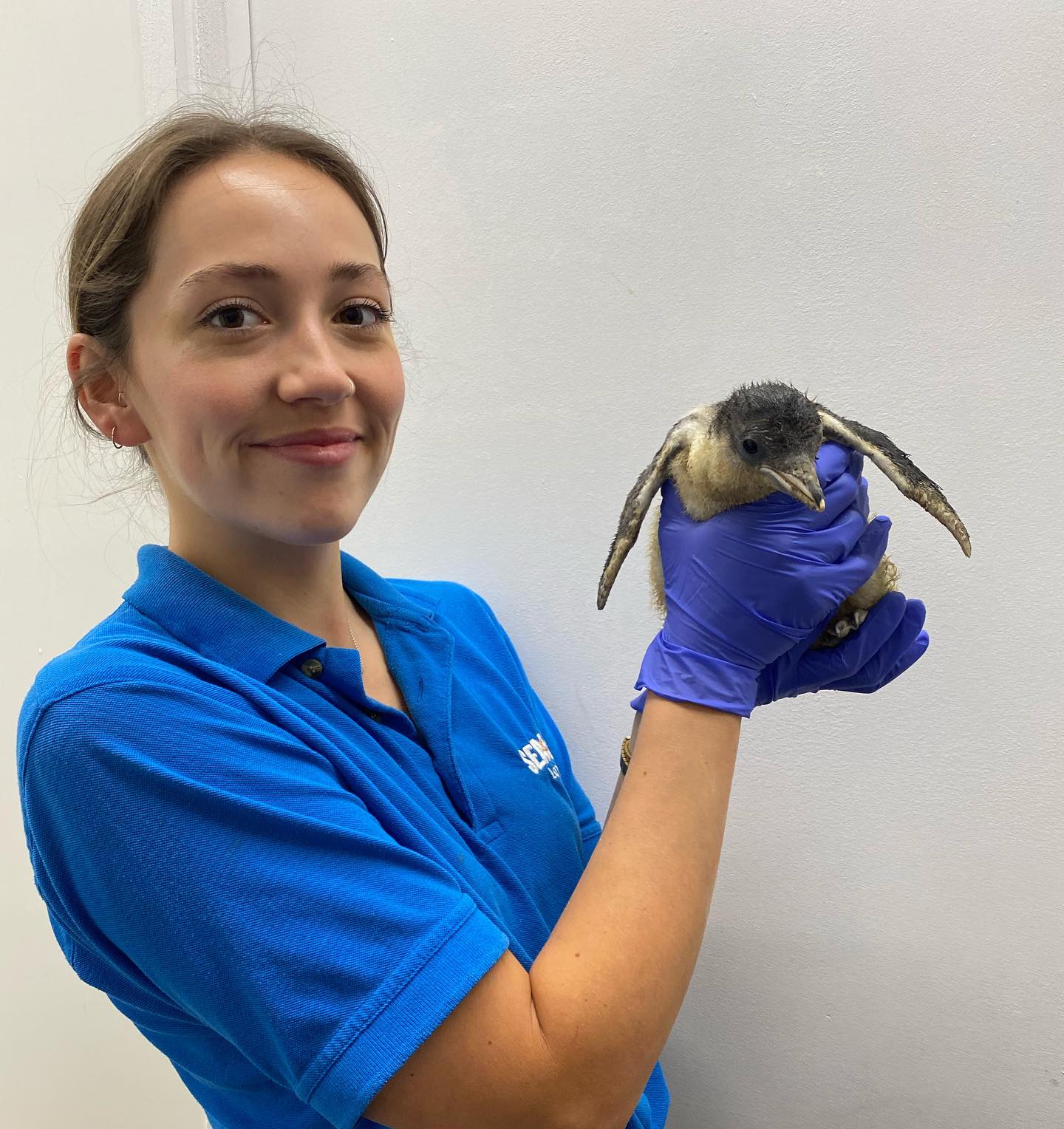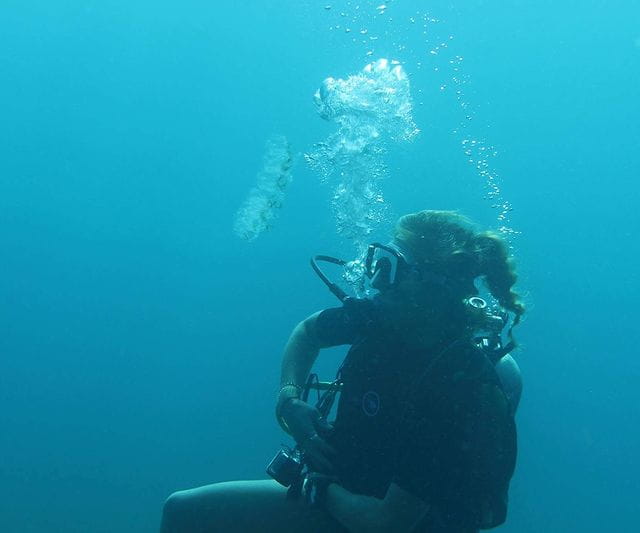Spotlight on...an aquarist

Harriet Tyley graduated with an MSC in Tropical Marine Biology in 2018. In this blog she shares a fascinating insight into what life is like as an aquarist working at London’s SeaLife Centre.
Tell us about yourself
I completed an undergraduate degree in Marine Biology and Coastal Ecology then came to Essex to study a Masters in Tropical Marine Biology. I have always been a thalassophile; fascinated by water and the things living inside it. It was during my A-levels that I really decided to pursue this as a career, and this is also the time I become very aware of environmental issues such as overfishing and climate change.
Why Essex?
I was looking for a course that was more focused on tropical marine environments, as I was particularly interested in coral reefs and mangrove habitats and knew that this was the area I wanted to focus my career on. I knew a few people who had studied the course and recommended it to me.
How was your time at Essex?
I lived off campus in Greenstead in a shared house. It was a twenty-minute walk or ten-minute cycle to Colchester Campus, and close to the supermarkets and town.
My course made me even more passionate about marine life, conservation, and science-communication. I learnt that I wanted a career where I was kept on my toes and empowered to make change. I feel that my time at Essex equipped me with the skills and confidence to venture into many areas within marine science, and since graduating I have achieved a lot that I’m proud of.
I also met a group of incredible and like-minded individuals who act as a support network for me – Professor David Smith has written me many references and is just one example of how great the lecturers have been in helping me with my career!
Where did life take you after graduation?
I knew how important it was to have volunteering experience within the aquarium and marine conservation industry so, while I have both a BSc and MSc in Marine Biology, I also made sure I did nearly a year of volunteering and paid-work at various marine conservation projects. I supported turtle conservation in Greece and coral conservation in Indonesia.
And now you work at one of the most famous aquariums in the world – the London SeaLife Centre!
Yes, I’m an aquarist focusing on animal husbandry. We’re essentially the people that keep aquariums running behind the scenes! I manage displays, keep the animals healthy, check the water chemistry and ensure the life-support systems are doing their jobs properly.
Every day is different, and that’s one of the great things about being an aquarist and working with a diverse collection of animals. Most of my time is spent working with jellyfish - culturing and growing them from polyps, and when they’re big enough, putting them on display. Some days I help with other sections of the aquarium - earlier this year I was lucky enough to help rear two gentoo penguin chicks, one of which was hand-reared! Some days we need to dive in our larger tanks to clean the windows, and that’s always fun (until a sea turtle tries to nibble you!).

Cleaning is a big part of my job - there are lots of displays that need cleaning before we open our doors to customers. Our day starts early, and we get a large amount of our work done before the public come in. We need to prepare the food for all our animals, and then feed the entire aquarium!We have discussions with our vets to make sure that our animals are receiving the best possible care, and we also do a lot of research to help us understand the animals we care for. We collect water samples and test them in the lab, we maintain life support systems, and we also interact with our guests, answering any questions they have about our animals.

What has been your proudest moment in your career?
I’m going to have to pick two! I spent a summer working in Greece with ARCHELON where I helped monitor the nesting loggerhead turtle population. This was an incredible experience and working closely with these animals in their natural environment was amazing. I could really see the difference that each volunteer made to the charity, and it was great to be a part of something so meaningful and impactful.
Then I travelled to Indonesia to conduct research for my Masters and I ended up going back and working as a staff member with Operation Wallacea at their site in Hoga. I spent two months teaching students about coral reef ecology, how to lay transects on the reef and how to collect scientific data. They were both amazing experiences which will always stay with me.
One of the biggest challenges is the competitive nature of the industry. It can be a struggle to find a permanent, paid position in marine conservation, and sometimes you’re expected to work extremely hard for a low salary. But for me, I love what I do, so it’s worth it.
You mentioned that it’s a very competitive industry – what advice would you share with anyone looking to begin a career in this field?
It is competitive – jobs usually receive a high volume of applicants so you really need to stand out. I did a lot of volunteering both before and during my degree. I cannot emphasise how important volunteering is. There is not a single person I know working in marine conservation/research that hasn’t gained a lot of volunteering experience. I’m also a qualified PADI dive master which is a very useful skill to have as an aquarist. Keep in touch with lecturers too; you never know when you’ll need a good reference!
Have you heard that the University has recently declared a climate emergency?
Yes I have, and I think it’s great. It’s so important that both individuals and institutions acknowledge what is happening to our planet! We cannot fix a problem that some people deny exists.
What’s next for you?
I want to do a PhD further down the line and focus more on research and conservation. I’m only just beginning my career, and I’m really excited about the opportunities on the horizon. Working as an aquarist has given me a lot of knowledge and insight, and I’m confident that these skills will be helpful if I ever decide to transition to a different area of marine conservation. I hope that one day I can make a difference.



